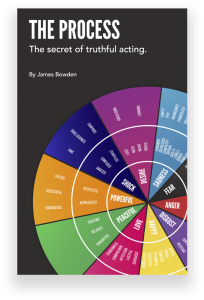
This is not a cri de coeur. It’s an observation. I am wryly (grimly) amused to discover over the last week or two that there comes a point in this hideous disease when the much promoted doorways to “help” begin to close against you. It’s a good job I’m resourceful and by nature, a coper.
Last week I was advised to contact the local dementia support hub on the grounds that they’re “really helpful” and “can support you in lots of ways.” Well I’m sure that’s true if you – or your Alzheimer’s person – has just been diagnosed and you’re floundering. But it seems not to apply if you’re (as, ever truthful, I have worked out we are) approaching the end of stage 6 in a disease which – shades of Shakespeare’s Jacques in As You Like It – is deemed to have seven stages.
I spoke to a very pleasant woman at the hub who suggested most of the things I did long ago such as applying for attendance allowance, registering for reduced council tax and setting up lasting power of attorney. She then mentioned various local activities which My Loved One might take part in but the double incontinence was a conversation stopper. “Oh I’m so sorry” she said. “None of the centres and clubs we work with are suitable if there are toileting issues.” We ended up affably agreeing that there is nothing her organisation can do for us although she kindly sent me some leaflets – which, inevitably, told me very little I don’t already know.”
Then there was the private care agency I contacted with a view to setting up some regular morning visits. I wanted someone competent to get MLO up, showered etc and give me a bit of free time and space. When the two women who visited saw just how severe MLO’s condition now is, they emailed afterwards to say that their carers would only be able to work with us if I was on hand to assist (and, by implication, take responsibility.) Well that, of course, is no use at all so I told them I wouldn’t proceed.
I’ve also spoken to Social Services. A friendly man phoned me – once I’d asked my ever helpful GP to give them a prod because, to my astonishment, they weren’t taking phone calls when I tried to approach them a week or two earlier. Let’s hope nobody tried to phone in with a serious emergency that day.
Now, I’m well aware that I’m going to have to pay the entire cost of any care MLO has: that’s the reward for working very hard all my life, living within my income and saving money regularly. I’ve been paying carers I found and hired independently (very good they are too) for seven months now. When I explained this to the Social Services man he suggested that I simply carry on with these arrangements because if I opt for a social services “package” they will design and control it while I foot the bill. That was fair of him, I suppose. He’s right. I do rather object to both paying and being told what to do. What ever happened to “He who pays the piper calls the tune”? But it felt like yet another organisation washing its hands of us.
I’ve also been brightly advised by several professionals (my counsellor, MLO’s speech therapist, the physio et al) to contact the local carers’ group. “What would they be able to do for me?” I asked cautiously. “Oh they can support you. They have meetings and events for carers” comes the answer. Well, no doubt it’s an excellent service for people who feel isolated but I definitely don’t want to create a social life out of sharing woes with other carers. Moreover, there are dozens of events in my world which I could attend every week – and I’d really like to – if only I could get away more. I haven’t contacted the group.
Within the family, our fabulous sons do their best and are tremendously supportive but neither is now keen on taking sole charge for too long because the responsibility is so great. And one of “my” regular carers is becoming concerned that she doesn’t have the training to deal with an accident on the stairs so she’s understandably reluctant to commit herself too far into the future as the whole situation spirals downwards. Fortunately my other carer – and I shall very soon have to find and hire one or two more like her so that I have a watertight team to help me cope with the downward path – is very experienced, completely unfazed by the situation and willing and able to do anything that’s needed.
For the “future” – and who knows when that will be? – I’m planning to put a bed downstairs for MLO with a bed sensor which works like a baby alarm so I’d hear him if he tried to get out of bed. I have it in mind, when the time comes, to ask for a hospital bed and at the present rate of decline I think it’s likely to be sooner rather than later. I also intend to apply for a not very well publicised NHS service called “continuing health care” (CHC) which gives you funded daily nursing at home. I learned about this from a newspaper article and then researched it further, by the way. No professional I’ve spoken to has mentioned it. CHC means that you’re not bed blocking in a hospital or dumped in a care home. I’m told it’s difficult to get but I reckon I can probably fill in the forms persuasively. Words are what I do, after all.
Meanwhile I’m chuckling ruefully. When Alzheimer’s is first diagnosed every doctor, other medical professional, friend, colleague or the person you’re standing next to in the supermarket queue tells you brightly that there is a great deal of help available. Not when the going gets really rough, there isn’t.
Photograph: Happier times. On holiday in Canada, 2012









